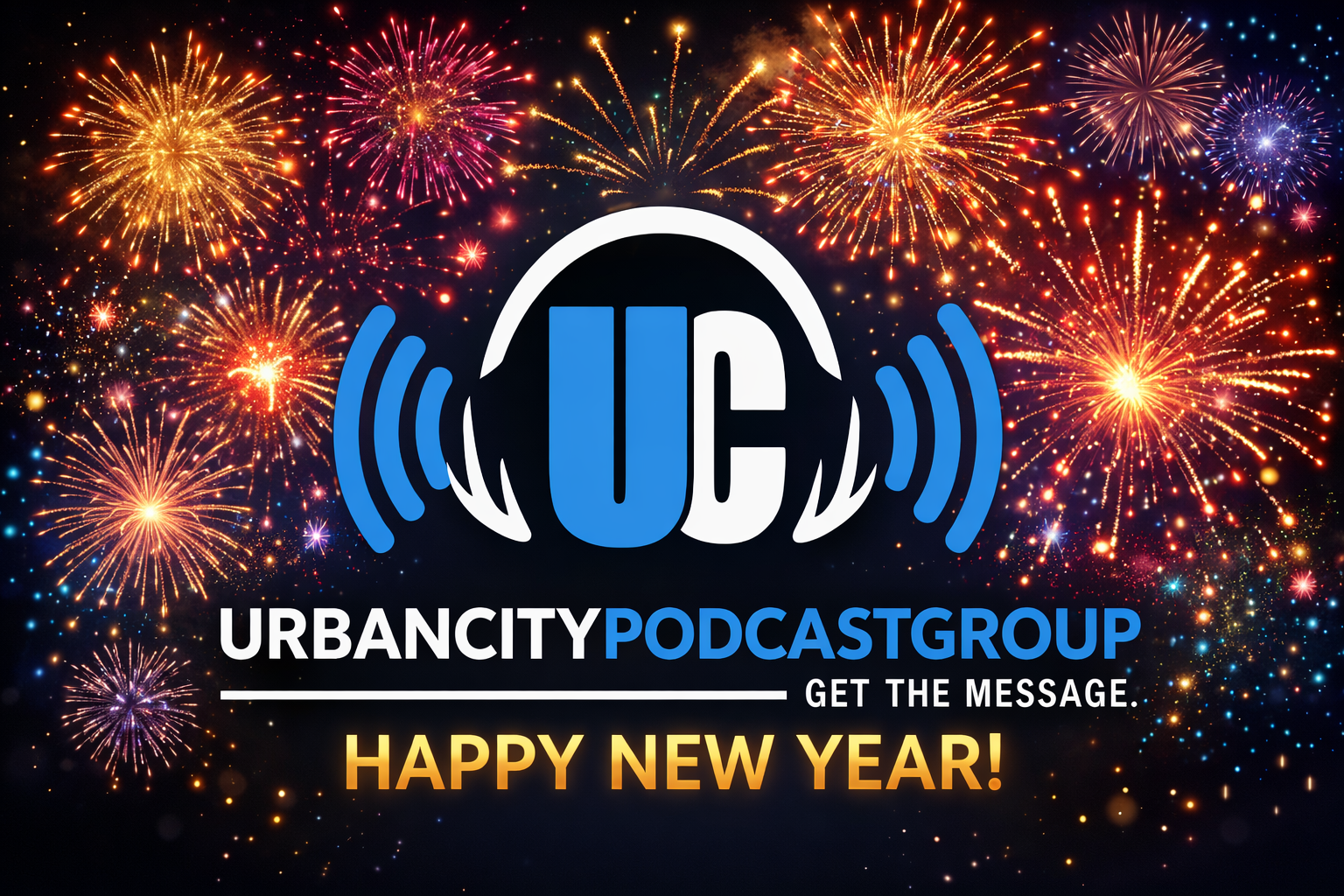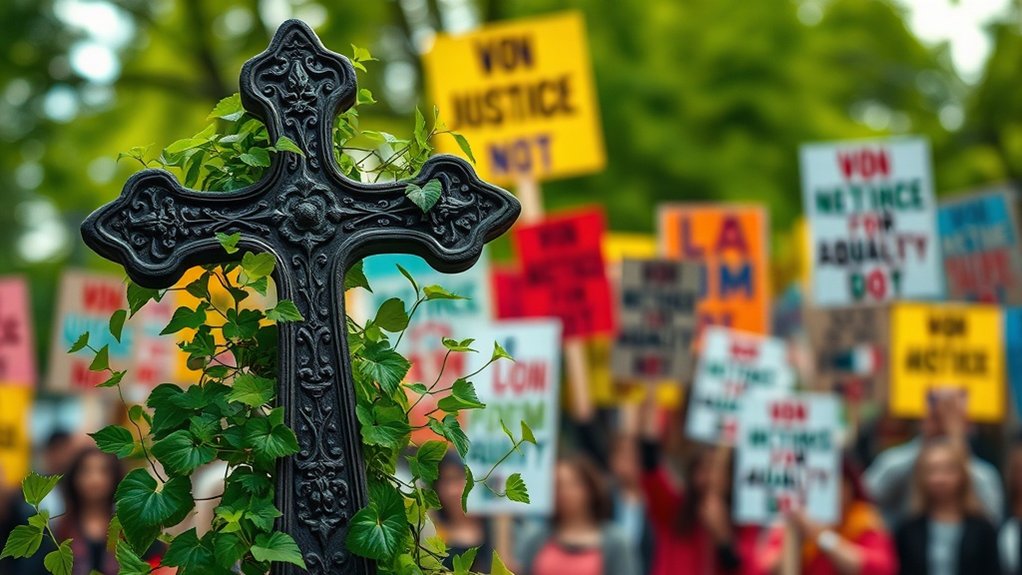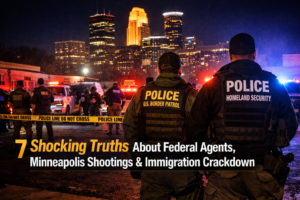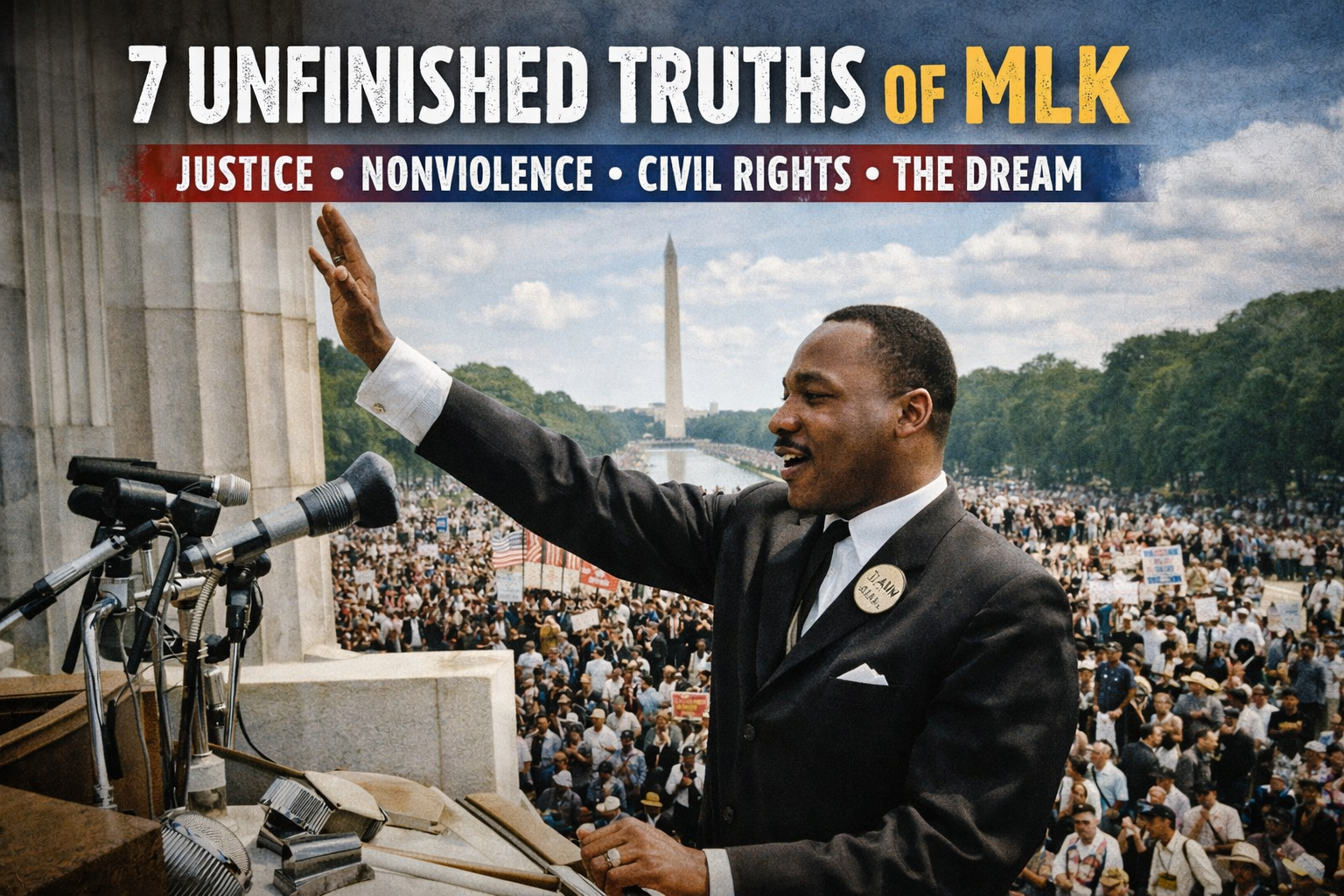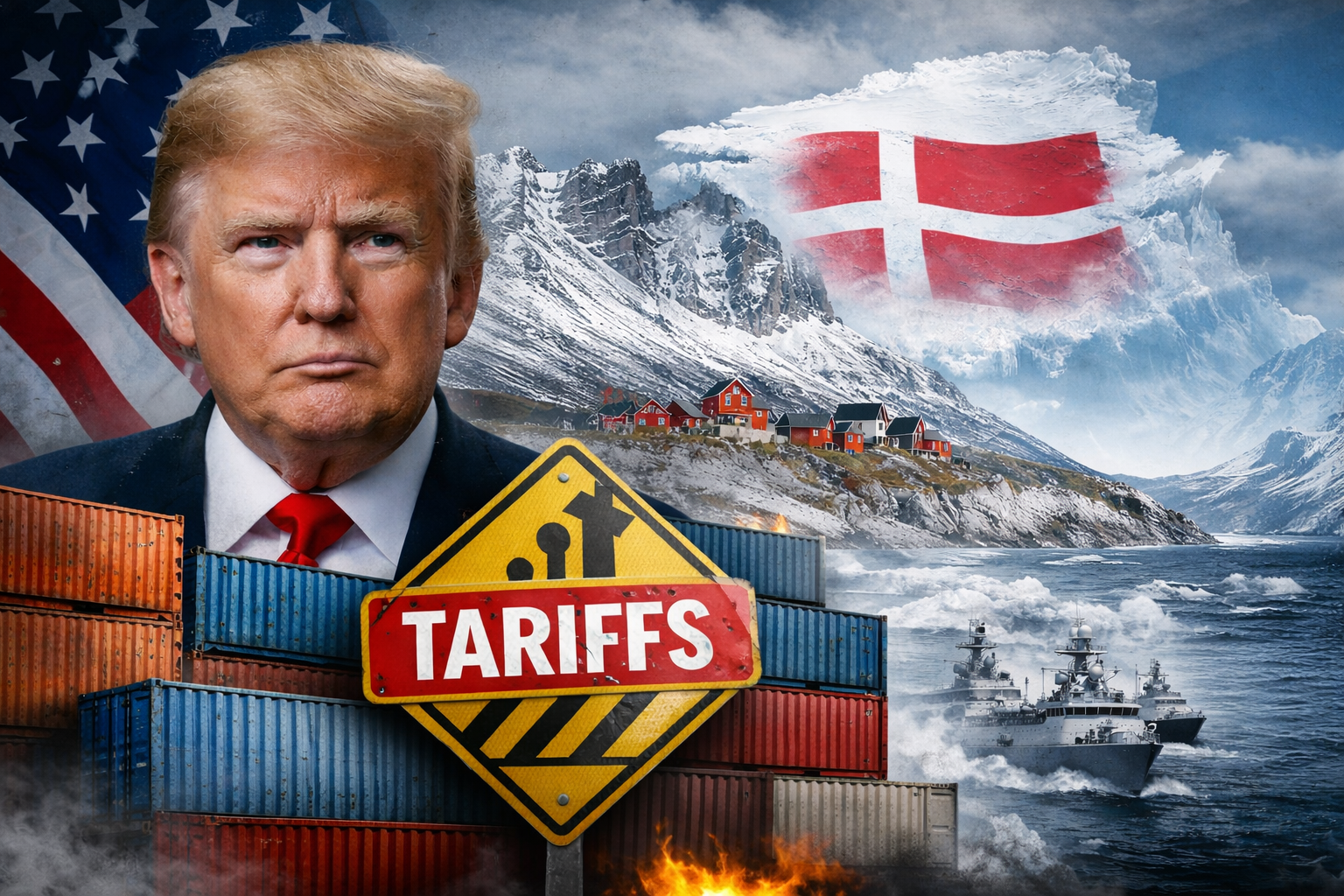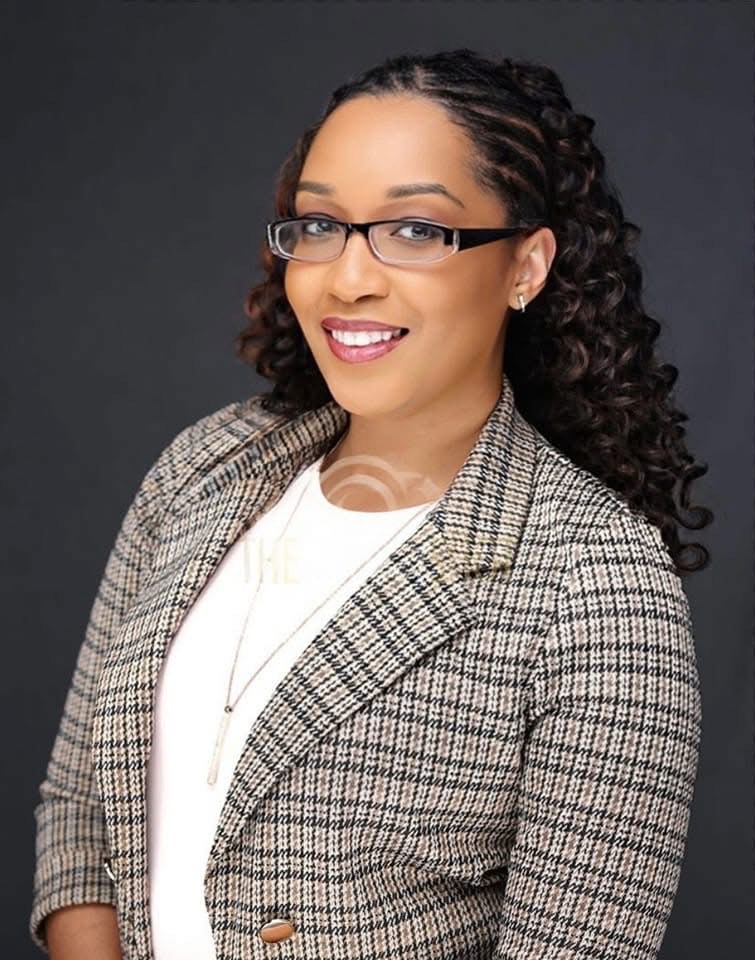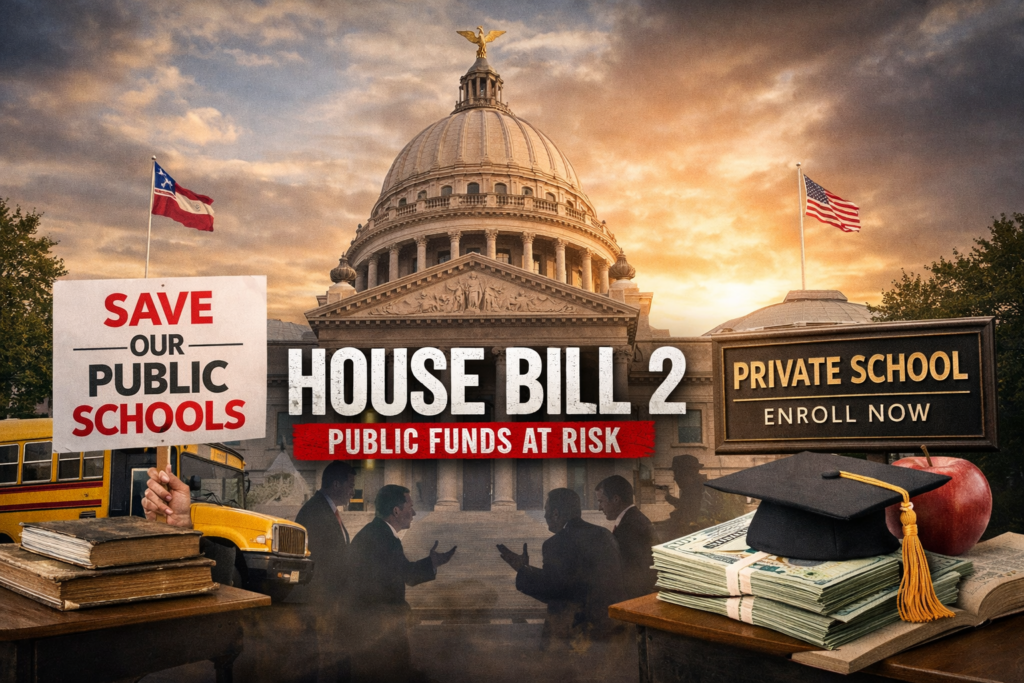Key Takeaways
- Faith-based groups from diverse traditions collaborate to advocate for rights that promote unity and empowerment.
- Partnerships grounded in shared values significantly impact healthcare, civil rights, and environmental challenges.
- Strategic unity in faith and social justice can navigate complex barriers and stimulate economic growth.
Synergy of Faith and Justice in Modern Communities
Imagine a community where faith and social justice entwine seamlessly in 2025. Faith-based groups from different traditions join hands, advocating for rights that unite and empower. You’re not alone in tackling issues—you’ll have a team grounded in shared values. These collaborations make a significant impact on healthcare, civil rights, and environmental challenges.
Curious about how this unity maneuvers complex barriers and cultivates economic growth?
Discover strategies that could transform urban communities.
Evolving Faith Patterns and Their Impact on Social Justice
Although religion has always played a significant role in society, its influence on social justice has never been more pronounced. You’re seeing how evolving faith intertwines with justice frameworks to drive change. Religious beliefs powerfully shape social justice motivations in professionals like social workers. They don’t just mesh personal faith with professional ethics; they create a potent mix that fuels systemic change. In moments of adversity, communities often draw from the value of praise, showcasing genuine gratitude amidst trials to fortify their resolve. Ultra-Orthodox social workers, for instance, extend their advocacy beyond their own communities, supporting marginalized groups. This highlights how faith-driven commitments can strengthen social justice efforts. Recent declines in local reporting and the rise of misinformation can challenge efforts by faith communities to communicate effectively and maintain trust. Faith leaders provide moral guidance, fueling movements that resonate across generations. In institutional spaces, integrating religious values with tailored resources enhances advocacy, demonstrating that evolving faith patterns directly impact social justice outcomes. A noteworthy event occurred on October 9, 2024, at Hemingways Nairobi in Kenya, where an inter-faith dialogue on recent youth uprisings in Africa highlighted the crucial role of faith leaders in collaborating with reformers to promote social justice effectively.
Social and Legal Barriers to Religious Advocacy
Faith’s dynamic role in social justice sometimes hits a wall when it tangles with legal checks and community hurdles. You see, religious exemptions under Project 2025 let faith-based groups sidestep nondiscrimination laws in care for children. Federal support helps religious employers align business operations with their beliefs, leading to legal challenges when employee rights clash. The Supreme Court’s *Groff v. DeJoy* raised the bar for denying religious accommodations, shaping work environments. Meanwhile, rescinding immigration protections for worship spaces sparks ongoing legal uncertainty. Public sentiment often obstructs religious advocacy, especially amidst fears of bias against minority groups. Latino political presence has increased since the 1950s, particularly in the House, highlighting the importance of Latin-X voices in shaping a more inclusive society. Federal plans for reduced oversight and increased funding for faith-based programs raise questions. Balancing these elements remains essential for encouraging an inclusive social justice environment.
Catholic and Methodist Perspectives on Justice Priorities
When Catholic and Methodist churches tackle justice priorities in 2025, you’ll find they’re deeply rooted in faith and community values.
Catholic priorities focus on dignity, workers’ rights, and welcoming the call to protect creation as a vital faith direction. They aim to abolish capital punishment, reinforcing their dedication to life.
Methodist priorities highlight social holiness through poverty alleviation and racial justice. Their commitment to faith-driven initiatives nurtures peace and reconciliation, ensuring all are dignified.
Both traditions strive for social cohesion, advocating for environmental stewardship and non-discrimination practices. They’re united in their approach to uphold worker rights and create inclusive communities.
Whether it’s through organized gatherings or grassroots mobilization, these churches passionately champion justice, weaving faith into everyday life.
Navigating Political and Social Challenges for Faith-Based Engagement
As you navigate the world of faith-based engagement, you’ll find these organizations standing boldly as essential lifelines in the community. They uphold justice amidst political and social storms, using interfaith collaboration and grassroots mobilization to create impactful change.
Here’s how they’re making a difference:
- Confronting Political Challenges: Faith groups battle against agendas like Project 2025, advocating for values that support healthcare and civil rights.
- Empowering Voter Education: By informing communities on policies that threaten equity, they promote inclusion and civic responsibility.
- Building Interfaith Coalitions: Diverse religions unite in strategic, nonpartisan ways to advance social equity goals.
- Innovating Engagement Tactics: New storytelling approaches help maintain credibility and draw attention to essential causes, ensuring their voices are heard.
Assessment
In 2025, faith and fairness are coming together to create exciting new opportunities.
Religious communities are combining their beliefs with courage to overcome obstacles.
They’re not just helping societies thrive; they’re making sure justice and inclusion are for everyone.
As you get involved, think about how you can empower others and promote equity.
Remember, change doesn’t just appear out of nowhere.
It takes hope and harmony to make it happen.
By joining this journey, you’re not just dreaming of a better world—you’re actually helping to build it.
